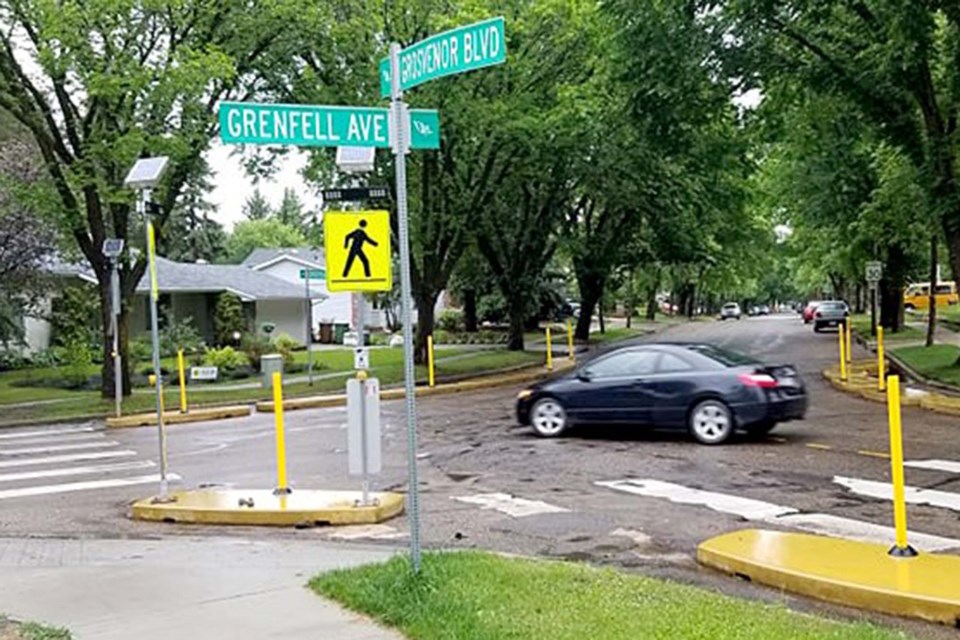Engagement surrounding St. Albert’s municipal naming project will be kicking off in the coming months, council heard last week.
During a committee of the whole meeting Aug. 16, St. Albert city council heard from project members about the details of research regarding municipal renaming in Canada, and an overview of an engagement strategy and timeline for St. Albert’s updated naming policy.
During budget deliberations last December, council voted to use $325,000 to fund community engagement, research, and educational material to update St. Albert's naming policy. The decision followed discussion about a neighbourhood and city streets named after Bishop Vital Grandin, who was involved in establishing and administrating residential schools. Currently, St. Albert does not have an established process around renaming.
A web page that outlines the project details and includes a link for members of the public to register for a virtual mini-information session in September is currently available at the city’s Cultivate the Conversation website, conversation.stalbert.ca.
There will be four general information sessions, with two additional sessions scheduled to specifically discuss the neighbourhood of Grandin, Teneya Gwin, naming review project manager and director of Eleven Eleven consulting, told council.
A public information manual supporting the project will be created following the sessions, and will incorporate the results of follow-up surveys sent to participants.
In November, the project team will host an event called “What’s in a name?” The session will be facilitated, and include “some really awesome panellists,” Gwin said.
“It will provide participants a much deeper dive into municipal naming work and renaming work challenges,” Gwin said, noting one half of the evening will also be a moderated discussion between the public and panelists.
Some questions the public engagement will seek to answer include: What values define your community? Who should be consulted in naming? What themes will guide future naming? How do we define dishonour?
St. Albert’s existing naming policy states that “at the discretion and authority of council, names may be repealed or renamed under the circumstances where the name may be associated or recognized with significant dishonour to the community, province, or nation,” but does not define dishonour.
The project team will also host a youth workshop, and in the first week of December will have two open-house sessions where they will share the feedback received throughout the project, and provide draft policy options for the public to give additional feedback on.
The engagement will culminate in a “What we heard” report, and naming policy recommendations are scheduled to come forward for council in the beginning of 2023.
Blaise Fontaine, project engagement specialist and communications lead, told council the goal is to create a naming policy shaped and informed by the public that “stands the test of time."
“We want to establish the city as a renowned leader in public engagement when it really counts, and to position the city as champions for creating a modern naming policy,” Fontaine said.
Though renaming work can include names associated with residential schools, Fontaine noted this work can happen for a variety of reasons. She said in the last few weeks, Edmonton renamed a school whose namesake was found to be a member of the KKK, and a Halifax high school was renamed from Prince Andrew to Woodland High School.
Environmental scan
Gwin shared the results of an environmental scan completed by the project’s research team — Elliott Young and Peyton Meters, both team members of consultant pipikwan pêhtâkwan.
The scan looked at 76 incidents of renaming work across the country, including street names, communities, school, sports teams, parks, and bridges.
Gwin said the sample size was limited to 76 examples, but noted the list is not exhaustive of all examples of renaming throughout Canada.
“This work is underway across the country and worldwide,” Gwin said.
Of the 76 incidents, 71 resulted in a name change, or have kicked-off the process to rename, Gwin said. The researchers found of the 29 street names reviewed, only two street names were retained.
In 11 instances, municipalities kept a place name following a review, but later changed it after further public feedback and engagement was received, Gwin said.
Of these instances, eight communities chose new names that honoured Indigenous groups, Gwin said, and 11 monuments were either removed or altered. Additionally, 10 schools, school boards, and universities renamed assets.
Indigenous guidance
Gwin said one key finding in the environmental scan was that when municipalities engaged with Indigenous community partners early and often, it led to better public reception of the renaming work, and “was instrumental to having a smooth engagement process.”
In the naming engagement process the project team is currently undertaking, Gwin said engaging with Indigenous community partners and residents of St. Albert will be essential.
“Indigenous communities have been long excluded from municipal naming practices and a narrative of St. Albert history,” Gwin said. “Indigenous voice is not just included, but amplified in this project, and we’ll ensure that those Indigenous voices and perspectives receive the respect that they deserve.”




